Multiple European Union and Maltese agencies have been requested to investigate how an EU-funded interpretation centre on Dingli Cliffs has been transformed into a fully-fledged restaurant doing brisk business, despite the fact that the facility is only permitted to have vending machines and a staff kitchen on site.
The interpretation centre, located on Dingli Cliffs, is operating as a full-blown restaurant known as The Cliffs, although Malta Environment and Planning Authority permits have specifically precluded catering facilities on the property, which is valued at close to €1 million but which is being leased by the Dingli local council from the government for the paltry sum, as far as commercial terms go, of €230 a year.
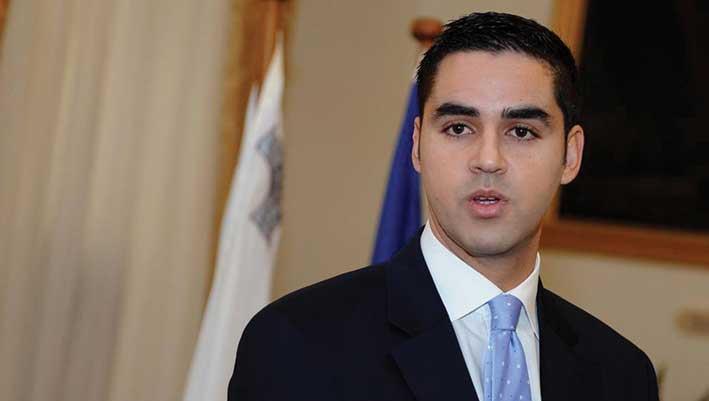
The facts of the case reveal a number of apparent coincidences, omissions and irregularities, chief among which is the use of public property for a commercial purpose which was specifically forbidden according to available Mepa documents. The case’s timeline also shows the involvement of former Dingli mayor and current Parliamentary Secretary for EU Funds Ian Borg in the main documented events and turning points in the case.
Reports and requests for investigations into the state of affairs – sent to OLAF (the EU’s anti-fraud agency), the European Court of Auditors and Maltese independent authorities including the National Audit Office, and the Office of the Ombudsman and the Permanent Commission Against Corruption – seen by this newspaper allege serious misappropriation not only of EU funds, but also of public land.
The case involves property on Dingli Cliffs for which a Mepa development permit was issued in the name of Ian Borg as then mayor of Dingli for the construction of an “interpretation centre”, which also benefited from EU funds.
The situation has been referred to the multiple authorities for formal investigation after it turned out that, soon after development, the site had been converted for use as a restaurant in direct violation of Mepa’s specific preclusion of Class 6 activities (operations involving catering, restaurants, food and beverages) in the relative Mepa permit and certain use obligations set out in a lease agreement to which the property is subject.

In the past, the Mepa board had twice rejected Class 6 (catering and beverage) use at the interpretation centre site. However, the centre is very clearly operating as a restaurant – in full contravention of the specific preclusion made by Mepa when granting the development permit.
The authorities are being asked to investigate “facts, actions, inactions and motives in the case of suspected collusion, fraud, irregularities, corruption and other illegal activity”. The Maltese authorities were also requested to consider the engagement of the police and other authorities in the investigation.
The complainant – Noel Ciantar, a Rabat farmer qualified in accountancy and who engages in investigative journalism – has put together public documents that show the involvement of Dr Borg, currently Parliamentary Secretary for EU Funds, in a number of key milestones of the EU-funded development in a way that, Mr Ciantar argues, Dr Borg should have known what was going on but appears to have failed to take action against the irregularities on site.
Mr Ciantar also argues that EU-funded projects are normally subject to rules which require Mepa permits, which, he says, have been violated in this case.
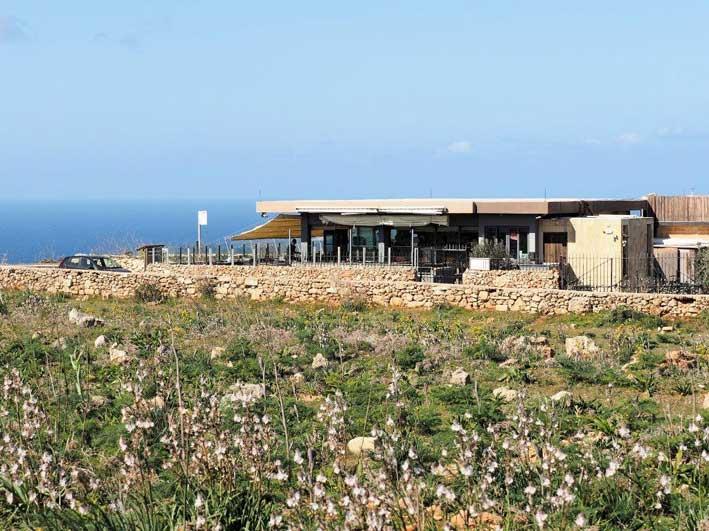
€1 million property handed over to the Dingli local council
The government property in question, tenement G05045, is a plot of land measuring circa 700m2 lying across the recently-embellished Panoramic Road from the cliff edge. Before the development, there were two small British military rooms, one adjacent to the other, on the land. The site enjoys breathtaking open views of the countryside, the cliffs and the south-western sea.
Going by the asking prices of nearby properties, the land in question has an estimated value of at least €1 million, and with the permitted development covering a footprint of 196m2, its commercial value is likely to be much higher.
In 2006, Dr Borg, at the time the relatively new Mayor of Dingli, signed a lease agreement with the Lands Department, in which the land was granted to the Dingli local council under title of use and administration for 15 years up to 2021, for the nominal annual rent of €230 (Lm100 at the time). Compared to the land’s value, the rental is a pittance, especially in terms of its current commercial use.
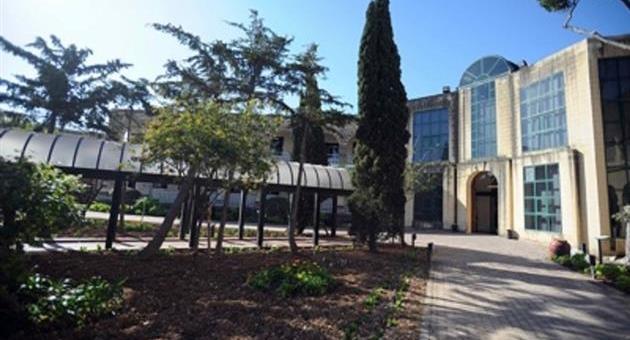
Mepa Outline Development Permit rules out catering facilities
In 2005, Mepa had issued an Outline Development Permit to a former Dingli mayor on a 2002 application (PA 05314/02), accepting in principle the development of an interpretative centre on the same site within the context of a proposed heritage trail.
In its decision, Mepa took into account relevant planning policies, on the basis of which it specifically ruled out catering, limiting the handling of food and drinks on site to the use of vending machines. The Outline Development Permit application was submitted by architect and Labour MP Charles Buhagiar.
It is likely that the Dingli local council used the development permitted in the Outline Development Permit for an interpretation centre in its arguments to later convince the Lands Department to let go of the land for a minimal lease.
Interpretative centre the central point of circular Dingli heritage trail
The interpretative centre was conceived as an integral part, and the central node, on a heritage trail designed by the Dingli local council with the stated intention to value Dingli’s natural and built heritage. The purpose of the interpretative centre on such a trail is that of informing and educating, as described in documents held at Mepa. Based on a map of the trail, the interpretative centre is positioned on a numerically sequenced walk route along the circular trail so that it represents the both the start and end points on the trail.
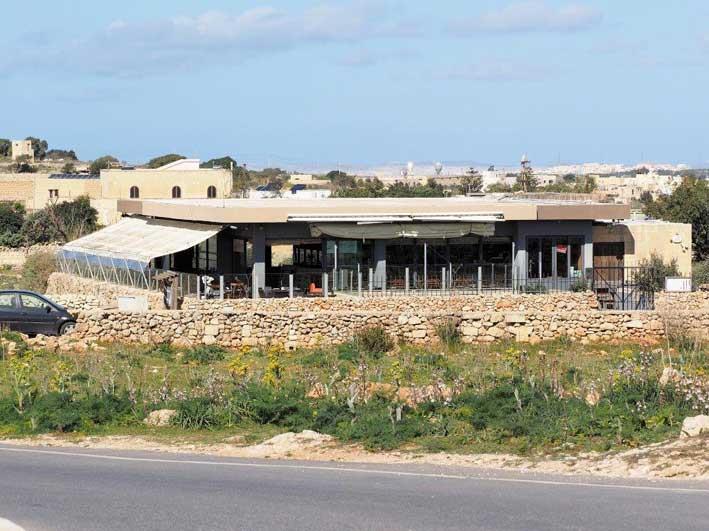
Sole bidder a one-man company set up days before tender published
On 5 October 2007, the Department of Information published a tender advert for the Dingli local council, calling for “expressions of interest – interpretative centre at Dingli”. Based on minutes of the Dingli local council meeting of 31 October 2007, the only bid came from a company by the name of La Pinta Limited, and although the minutes indicate that a question was raised about an “amount” which should have been submitted in the bid, the tender was awarded to the sole bidder.
La Pinta Limited is a private company formed with a paid-up share capital of €1,165 and having one shareholder, who is also the sole director and company secretary, and who is qualified as a chef and resides at the company’s registered address in Dingli.
Strangely, La Pinta Limited’s certificate of registration in the records of the Malta Financial Services Authority shows that the company was registered on 2 October 2007, just three days before the publication of the tender that the company eventually won.
Ian Borg requests full development permit for interpretation centre... including catering, again
Although the 2005 Outline Development Permit relative to the 2002 Mepa application had clearly excluded catering activities within the permitted use of an interpretative centre, on 29 January 2008, Ian Borg, using his own name and in his then role of Dingli mayor, and acting again through architect Charles Buhagiar, submitted a full development application (PA 00425/08) for the interpretation centre, proposing a total development footprint of 373m2, including 248m2 (i.e. 66 per cent of total) for “display/information/Class 6”.
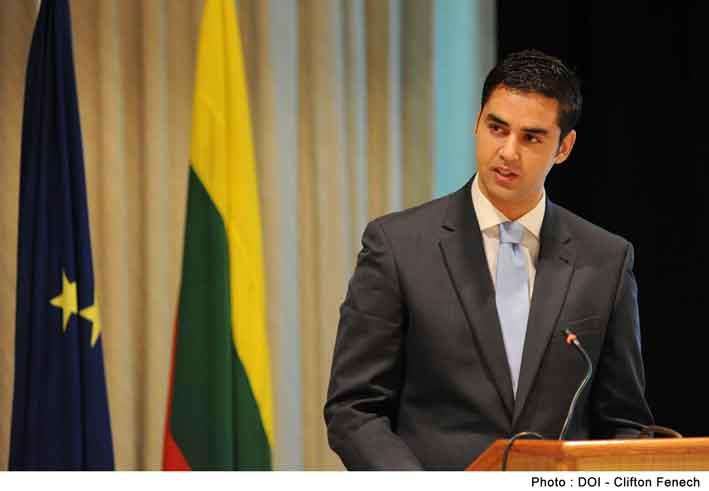
Mepa reconfirms its 2005 decision, expressly ruling out Class 6 operations.
Dr Borg’s application was discussed in a number of meetings of the relevant Mepa board. The minutes of the Development Control Commission meeting of 18 March 2009 state clearly that “... Board intends to refuse application because: the size is deemed to be excessive and therefore there is overdevelopment of site; (and) the use of class 6 has not been permitted in outline permit.” This significant point was never mentioned in minutes of meetings of the Dingli local council of 2009 or since.
The Case Officer’s Report confirms the DCC’s decision, and adds that Mr Buhagiar submitted “a set of revised drawings reducing the area to 196 m2 which is equal to the approved building area of the outline permit previously issued PA 5314/02. The catering facility was also removed.”
Following the amendments, the application was approved on 20 January 2010 “in view of the Outline Permit”. The approved plans are marked 77A and 77B in the Mepa file and are referred to in the Case Officer’s Report and the full development permission, and clearly show no reference to any catering facilities.
The permit was issued and signed on 10 March 2010 in the name of Ian Borg, “obo Dingli local council”, with the address of the council. Construction took place between 2010 and 2011. It is understood that the development was carried out by La Pinta Limited and that it appears in its fiscal books.

Borg applies for an underground LPG gas tank
Things took a strange twist on 8 June 2011, when Ian Borg “obo Dingli local council”, acting once again through Mr Buhagiar, submitted a ‘minor amendment’ application to Mepa for the installation of an underground LPG gas tank of “1,250 litre water capacity” (estimated to be equivalent to around 50 12kg domestic gas cylinders by volume) at the Dingli interpretation centre.
By this time, the property was in possession of La Pinta Limited. As such, it is not clear what prompted Ian Borg, acting “obo Dingli local council” to involve the council in the application over property held by a private company.
Moreover, the application was submitted using a ‘minor amendment’ procedure. It is questionable whether the minor amendment procedure is applicable in this case, but it is certain that, as opposed to a full development application, it entails no publication of the proposed amendment and does not allow for sufficient public scrutiny and representations.
Within five days, on 13 June 2011, Mepa approved the application, without any publicly available documentary evidence that the Mepa sought or obtained either any justification for the installation, or any risk and impact assessment studies, despite the fact that the site lies a stone’s throw away from the Dingli radar station.
Dingli local council minutes of 2010 and 2011 contain no reference to the development, or its discussion or approval. A minute from the meeting of 19 July 2011 states that Mayor Borg said only that “the contractor has carried out some modifications over these last few days”.
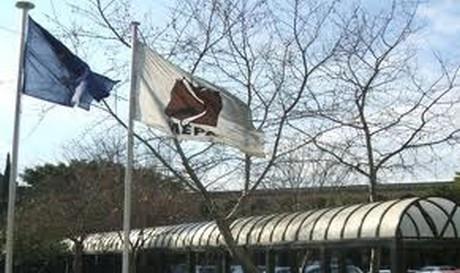
Mepa wakes up and smells... the gas
It seems that the inevitable followed, and it appears that the installation of the underground LPG gas tank may have rung the alarm bells at Mepa.
On 27 July 2011, Mepa Planning Enforcement Officer Marcelle Agius wrote to Ian Borg at the Dingli local council address stating: “Further to verbal communication with the person who claimed to be the operator of the premises mentioned above, may I please advise that the use of the premises must be limited only to that of an interpretation centre and any other sue [use] that falls under Class 6 of the Use (Classes) Order is not authorised. In the circumstances, the use of the place as a restaurant/bar shall be subject to enforcement action in terms of Act X of 2010 if such activity commences on site.” It is not clear why minutes of the Dingli local council make no reference to this correspondence.
An internal email dated 28 October 2011 from architect Elizabeth Ellul to Ian Stafrace, then CEO of Mepa, states “The kitchen as you correctly stated was an ancillary facility to the main use of the building. In fact, the Class 6 was removed from the plans by the applicant as directed by the DCC. Regarding your questions, I would like to confirm that... no area should be allowed for the serving of food and drinks because the use of the building is not a restaurant. The ‘area for food and drinks’ as mentioned in condition 2h of the permit relates only to the very limited use of food and drinks. The scope of the kitchen was to serve the staff and not a Class 6 facility.”

Interpretation centre turns into a restaurant
Despite the warning and well before Dr Borg’s term of office as Dingli mayor was up, the site was already operating as a restaurant under the name of The Cliffs. Reviews of The Cliffs restaurant published on TripAdvisor – a website which covers tourist travel destinations around the globe – date from March 2012, a whole year before Dr Borg stepped down from his position as Dingli mayor following his election to Parliament in the general election of 9 March 2013, and less than a year since his application for an underground LPG gas tank. Those reviews refer to the site exclusively as a restaurant, and there are no references to any interpretative sessions.
Ironically, the conversion of the site to a restaurant even preceded the official opening of the centre, which took place in the first week of November 2012. Dr Borg himself gave an inaugural speech at the event, and media coverage of the event states that the site would “serve also as a restaurant”.
Half a million euros of EU co-financed funds for the Dingli interpretative centre and related heritage trial
In 2010, the Dingli local council benefited from around €436,000 of funds co-financed under the European Agricultural Funds for Rural Development for work on the heritage trail. That work did not include the embellishment work – resurfacing and paving – on the Panoramic Road, which was financed separately by central government. The Panoramic Road is part of the route of the heritage trail.
In September 2012, and therefore after the conversion to a restaurant but before the opening, La Pinta Limited was granted around €64,000 of EU co-financed funds for its project described as “D Cliffs Interpretation Centre.” Payment of the funds was due in 2013, and it is as yet unclear whether the payment took place before or after Dr Borg became Parliamentary Secretary for EU funds. La Pinta Limited benefited under Call 3 of a scheme for “sustainable tourism projects by enterprises” co-financed under the European Regional Development Fund.
In total, the Dingli interpretation centre and the related heritage trail received around half a million euros of EU co-financing.
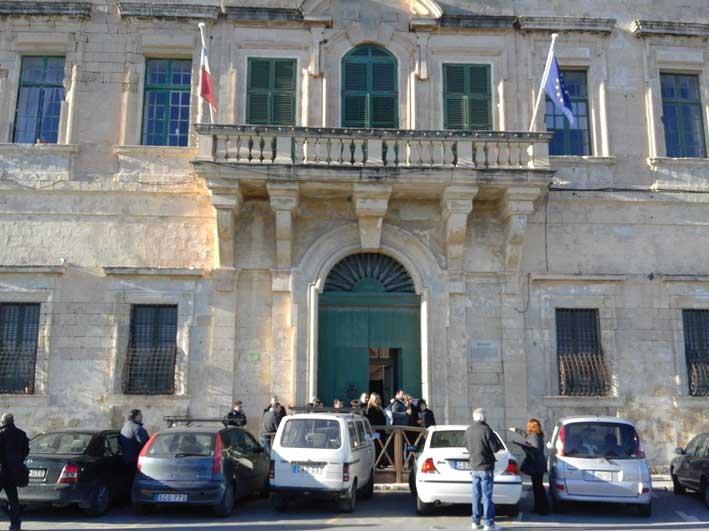
A case of fraud?
The case presented to the authorities by Mr Ciantar quotes Article 293 of the Criminal Code, which states that “whosoever misapplies, converting to his own benefit or to the benefit of any other person, anything which has been entrusted or delivered to him under a title which implies an obligation to return such thing or to make use thereof for a specific purpose, shall be liable, on conviction, to imprisonment for a term from three to eighteen months...”
The 2006 lease agreement between the Lands Department and the Dingli local council states among other matters that “the lessee may, subject to the prior written consent of the lessor and all permits required by law, carry out additions/improvements to the property let provided that such additions/improvements are within the spirit of the use of the property...” and that “this lease does not exempt the lessee from the obligations of obtaining any permit and/or licence which may be required under any law and/or regulation in force from time to time.” Given those contractual obligations on use, the question whether the conversion of the site into a restaurant is in violation of Article 293 appears to be a legitimate one.
This is in addition to the question as to whether EU funds have been used for a development, which appears to directly violate its Mepa permit. Although the project description which benefited from ERDF funding was for “D Cliffs Interpretation Centre,” it is as yet unclear what, exactly, was funded, but if it is in any way related to illegal activity, it is highly unlikely that it would be eligible for EU funds.
It also appears that EU funds spent on the Dingli heritage trail and on the interpretation centre have been mainly for the benefit of a private commercial enterprise.
PS Borg replies
In reference to a report published today on The Malta Independent on Sunday, Parliamentary Secretary Dr Ian Borg categorically denies all allegations being brought forward by a private citizen,against him and that relate to Dingli Local Council of 10 years ago.
Dr Borg states that he has no problem whatsoever that checks and verifications are made. On the contrary, he is very proud of what he did for his hometown of Dingli where he has served as Mayor for 8 years. In three consecutive elections, in fact, he was elected with a record number of votes.
In this case, all MEPA pemits and all authorizations needed were approved under Nationalist administration. The sublease with the private operator was approved by the Lands Commissioner in 2009 after he had seen all the relevant documentation. Apart from that, the only time that this centre has benefitted from EU funding was in 2012, again under previous administration.
Dr Borg reiterates the fact that all decisions taken by the Local Council were indeed unanimously approved by all local councillors including those representing the PN.’